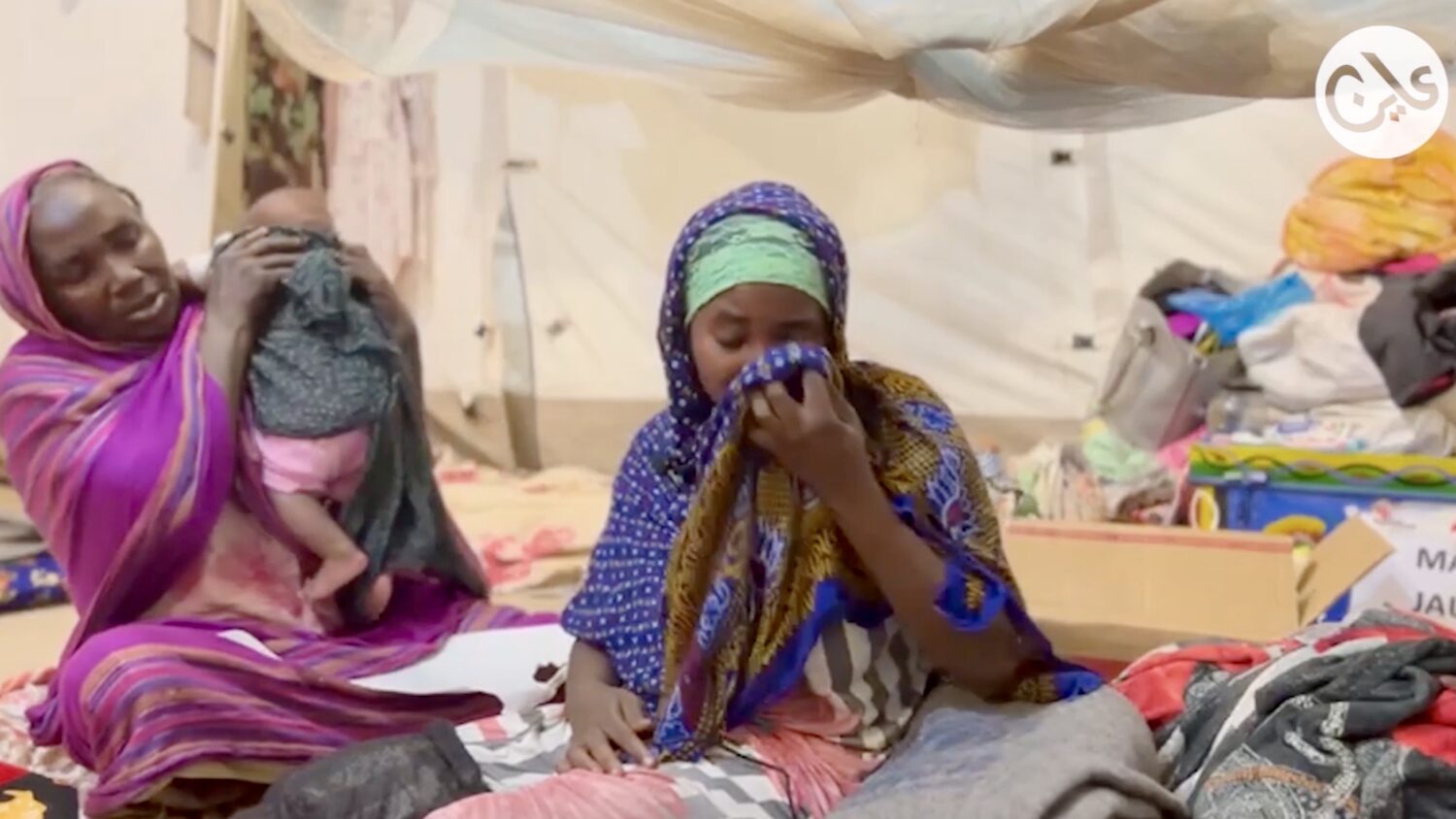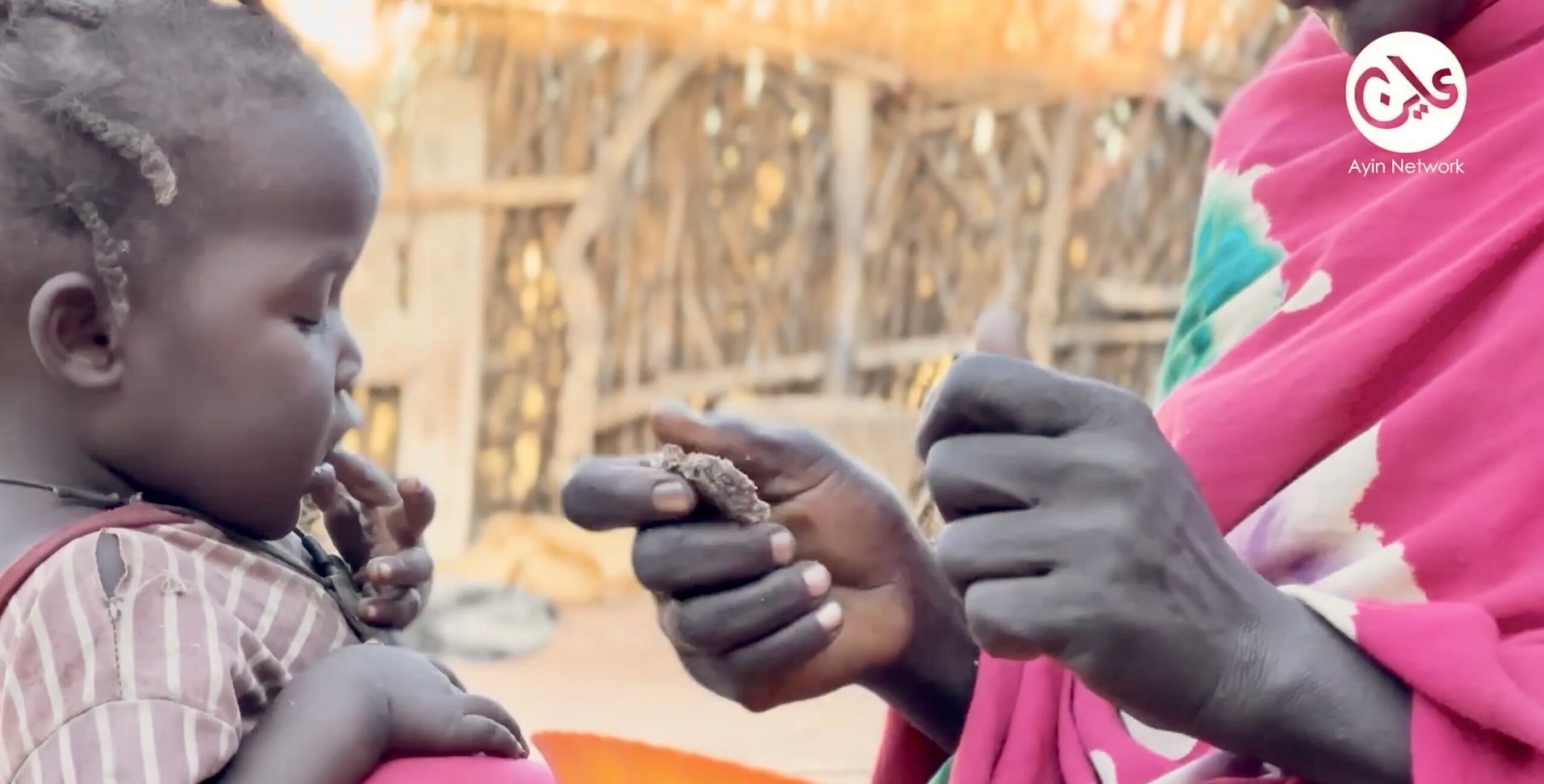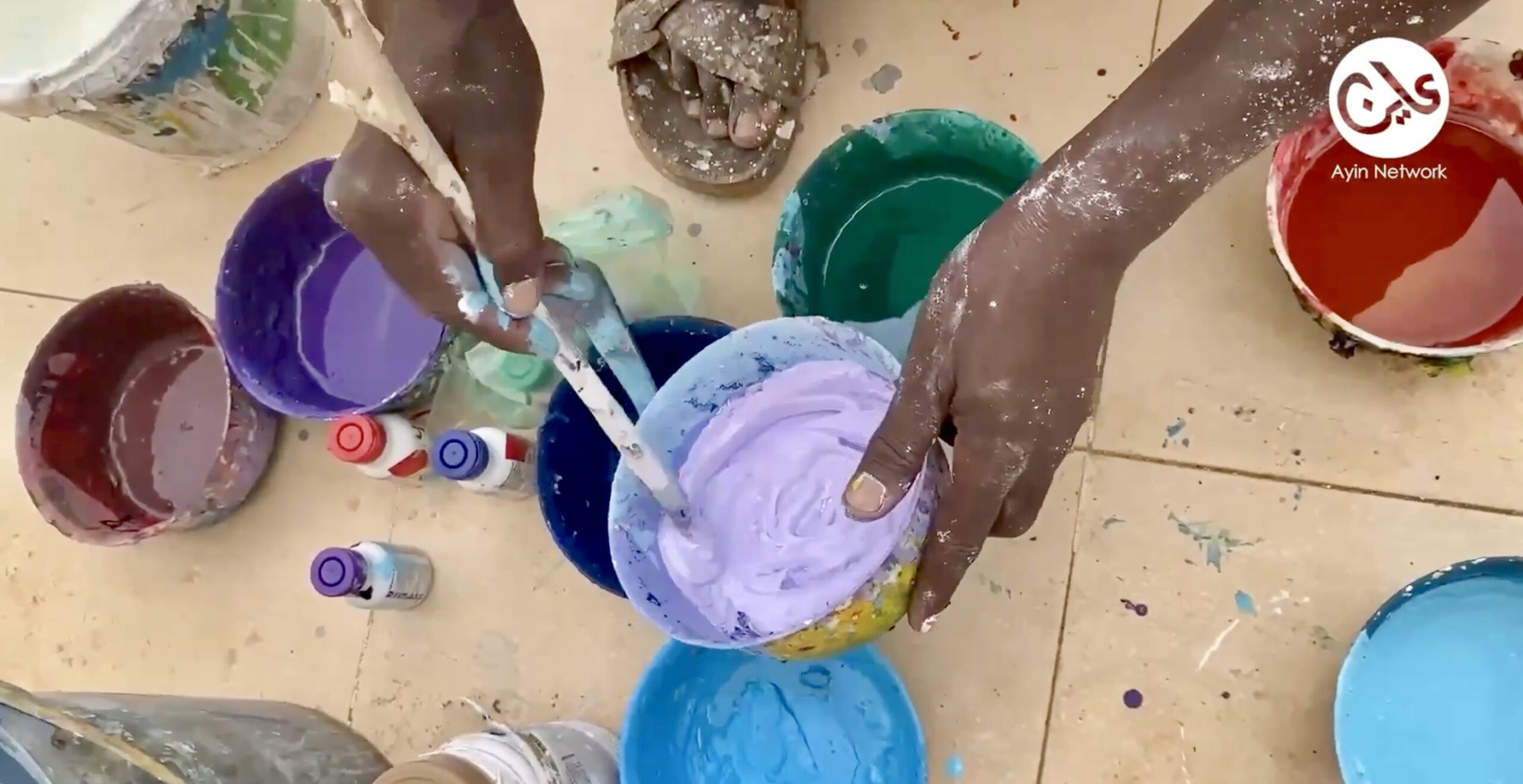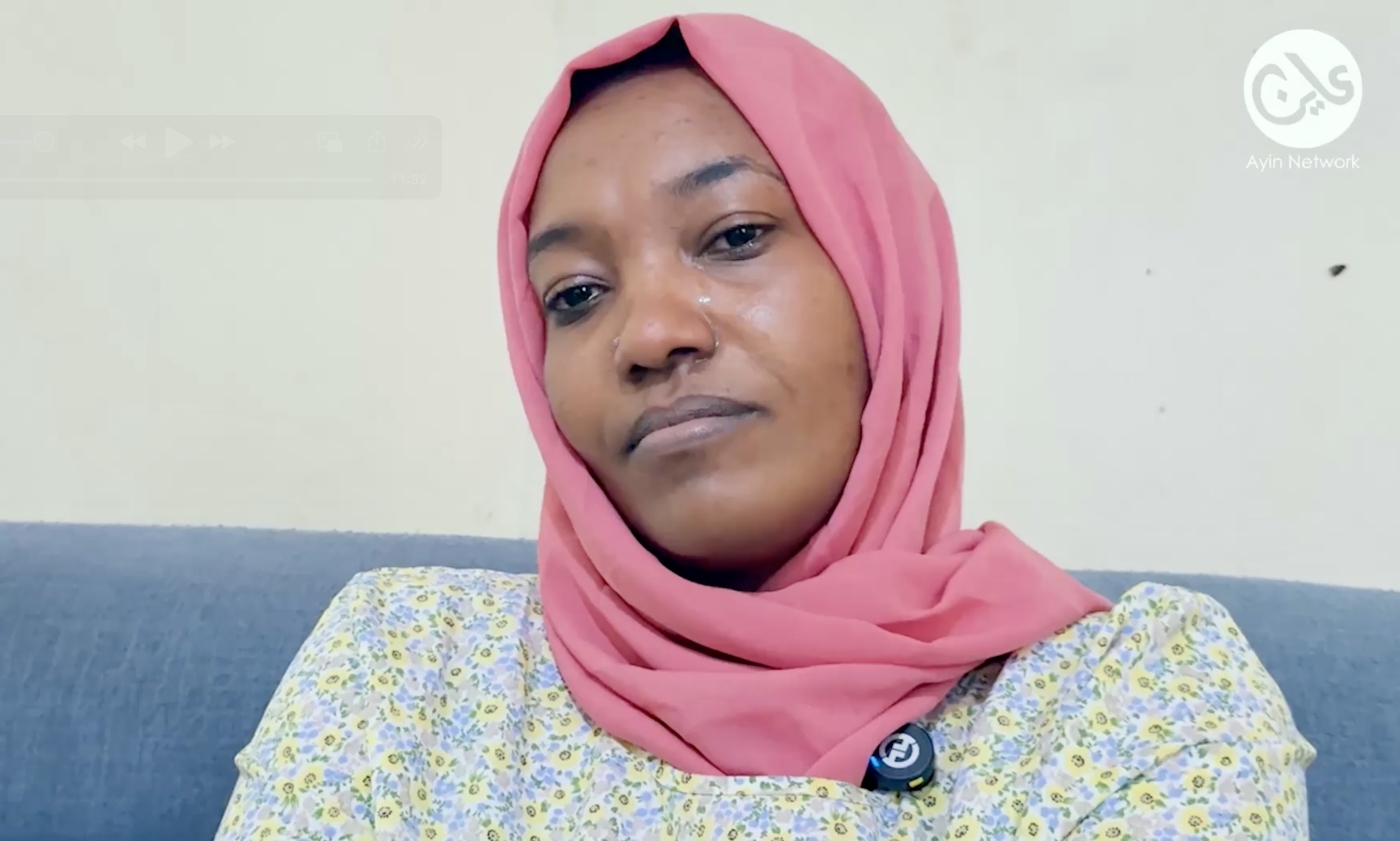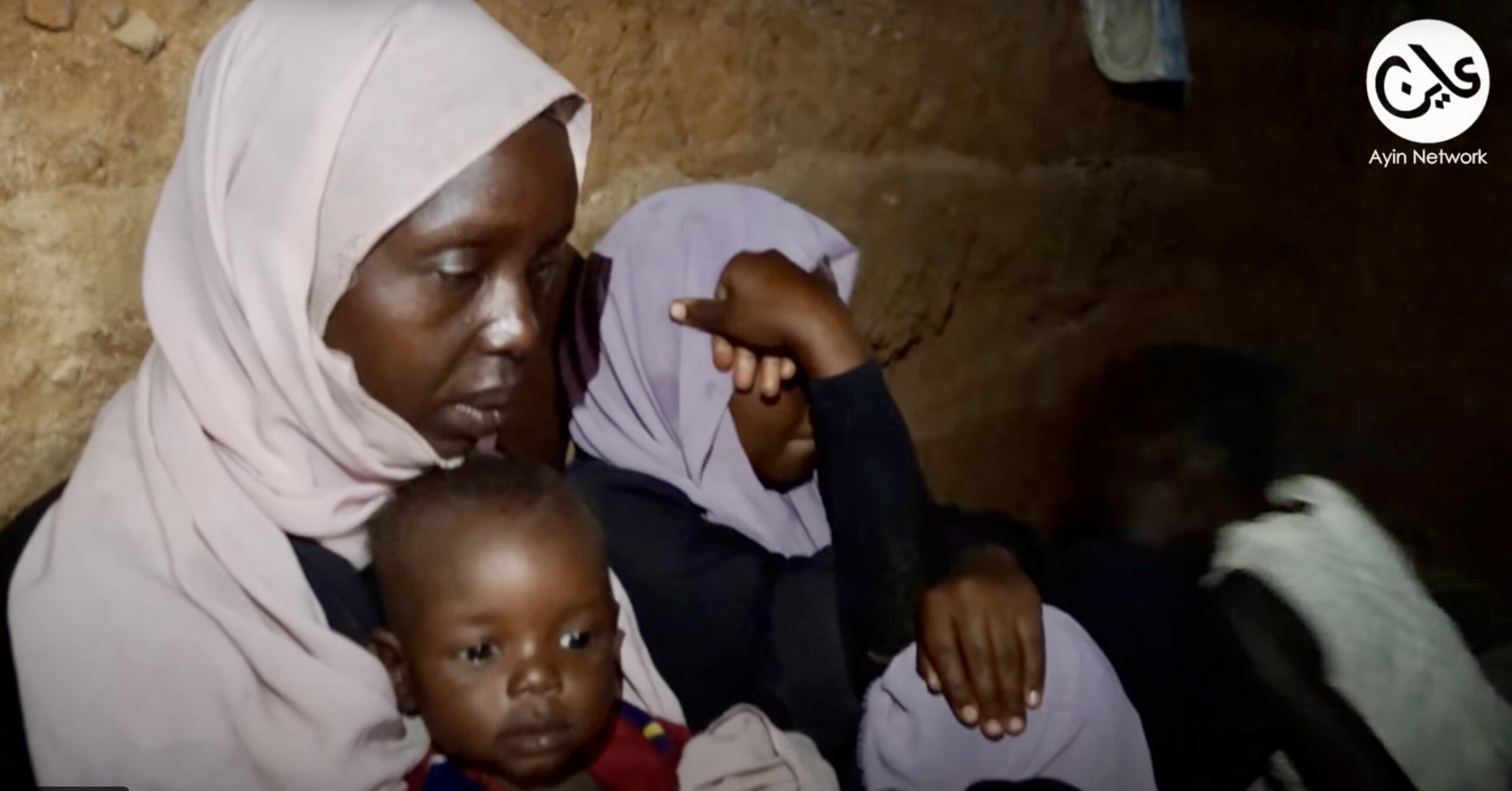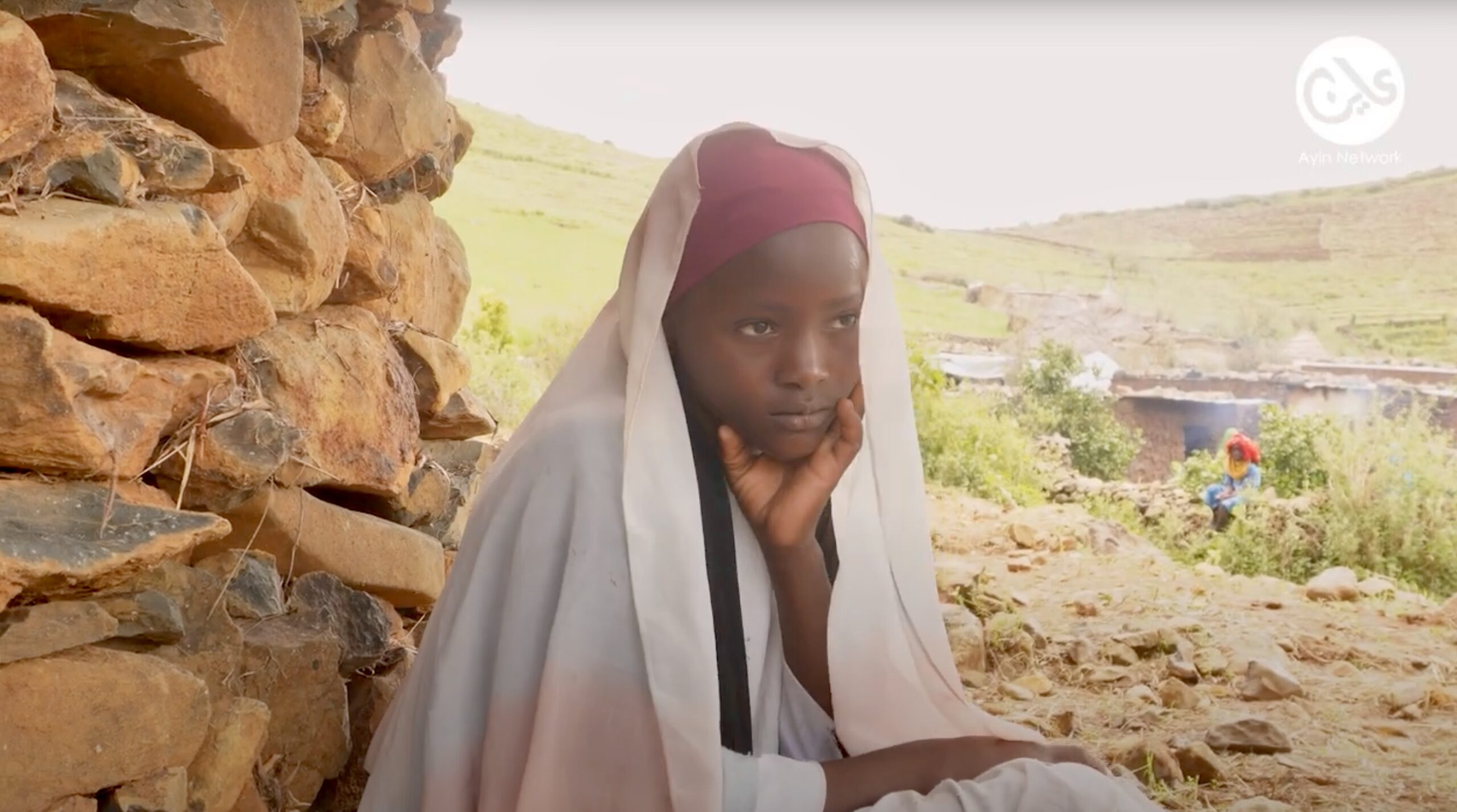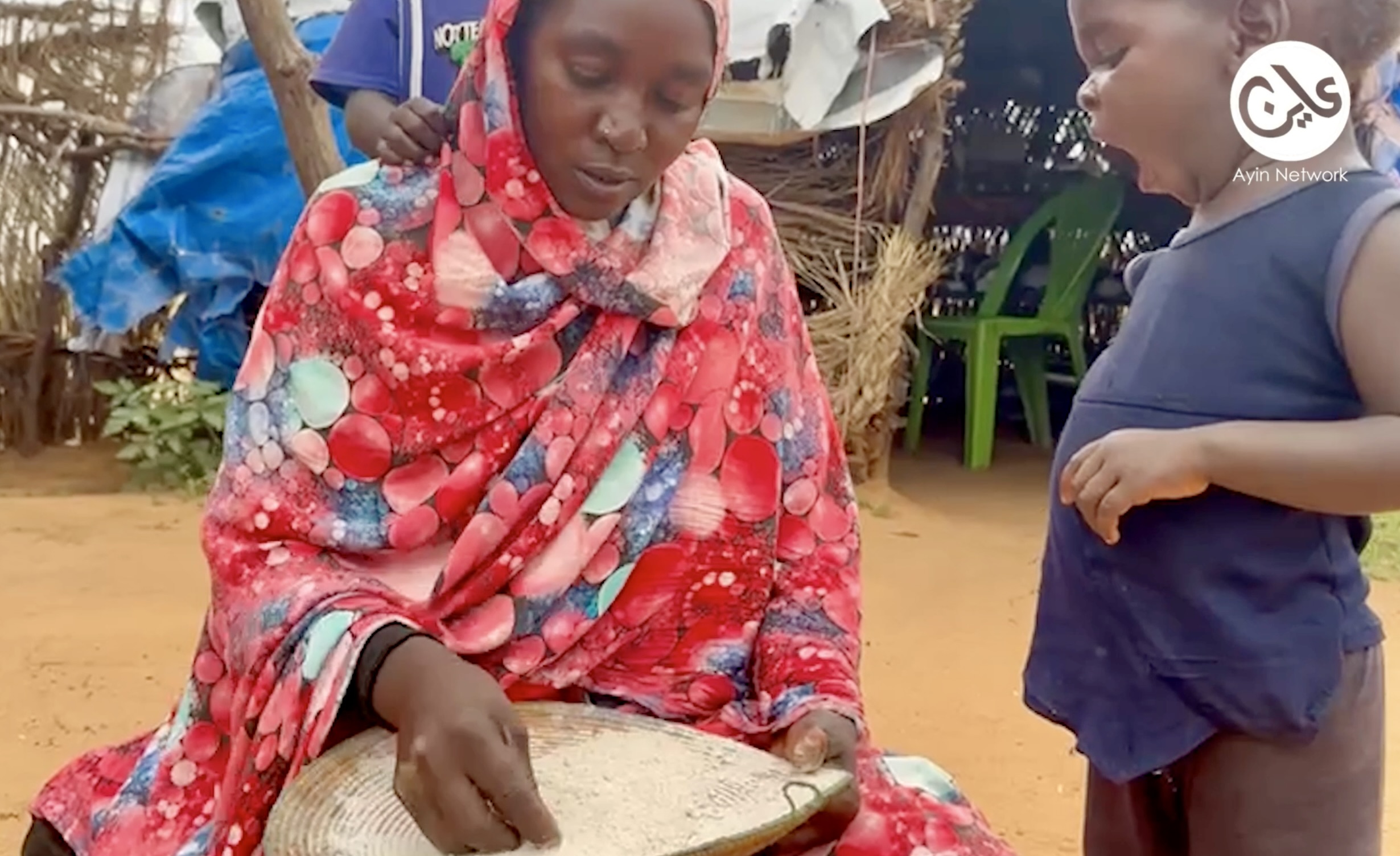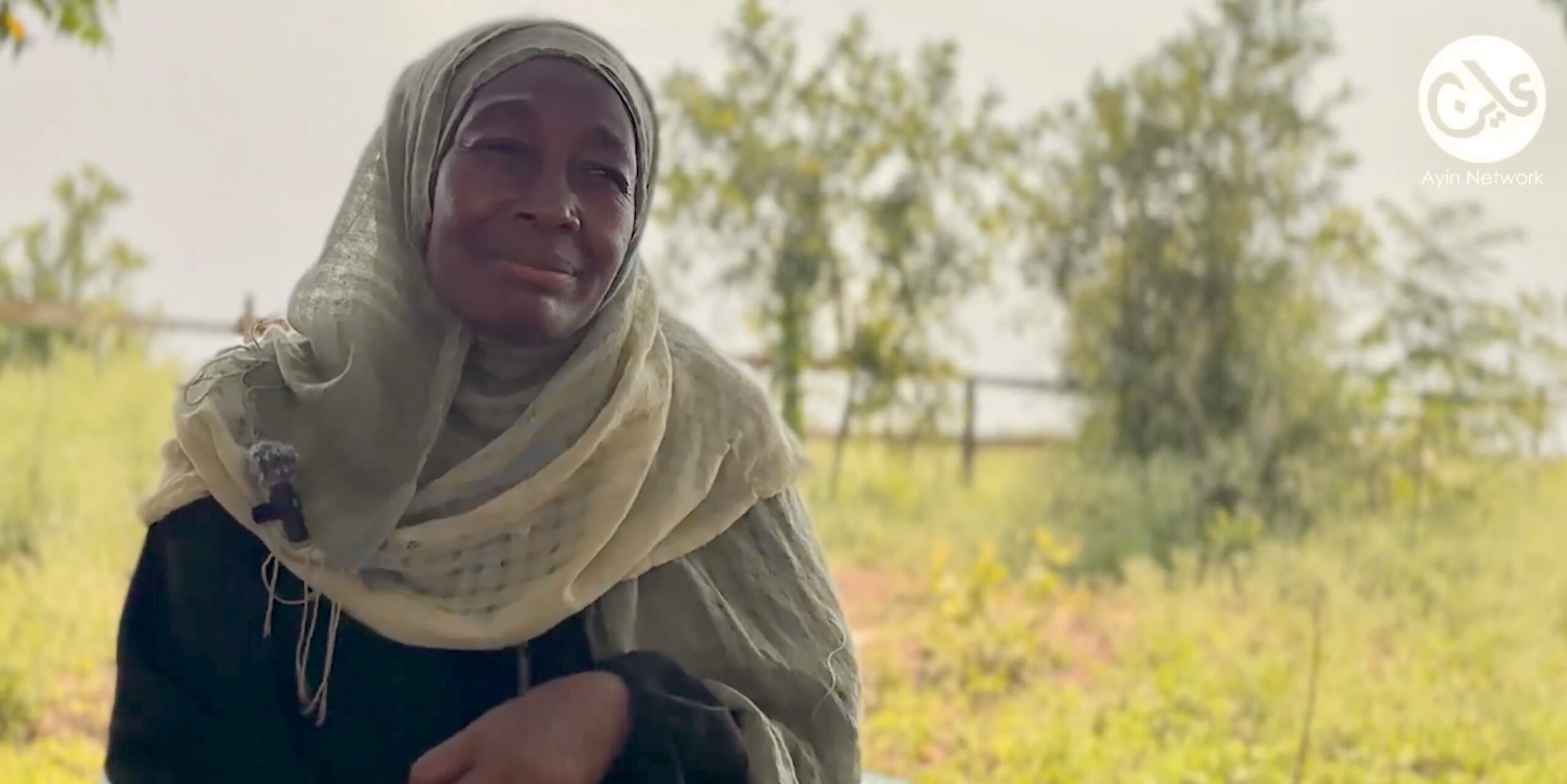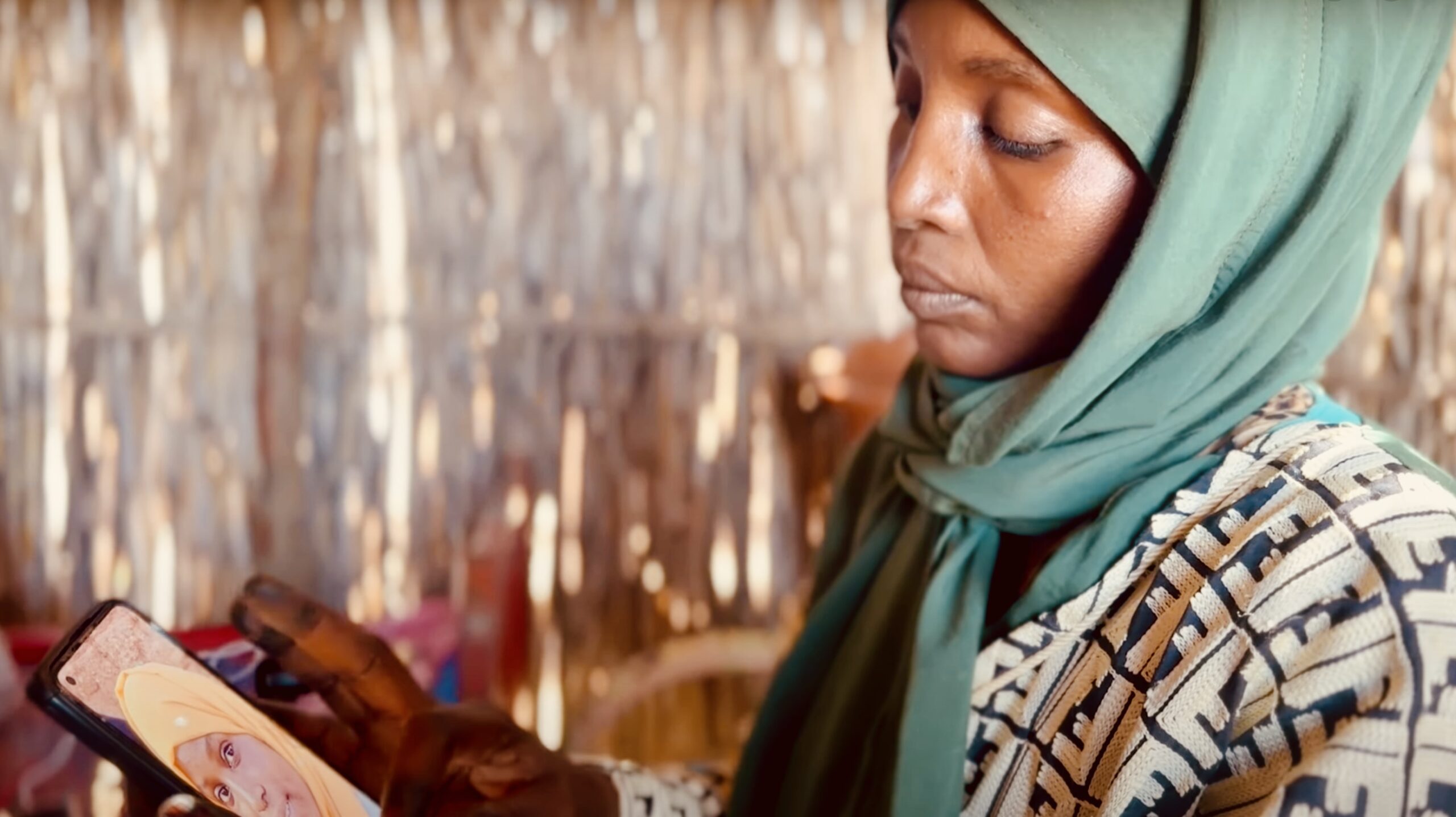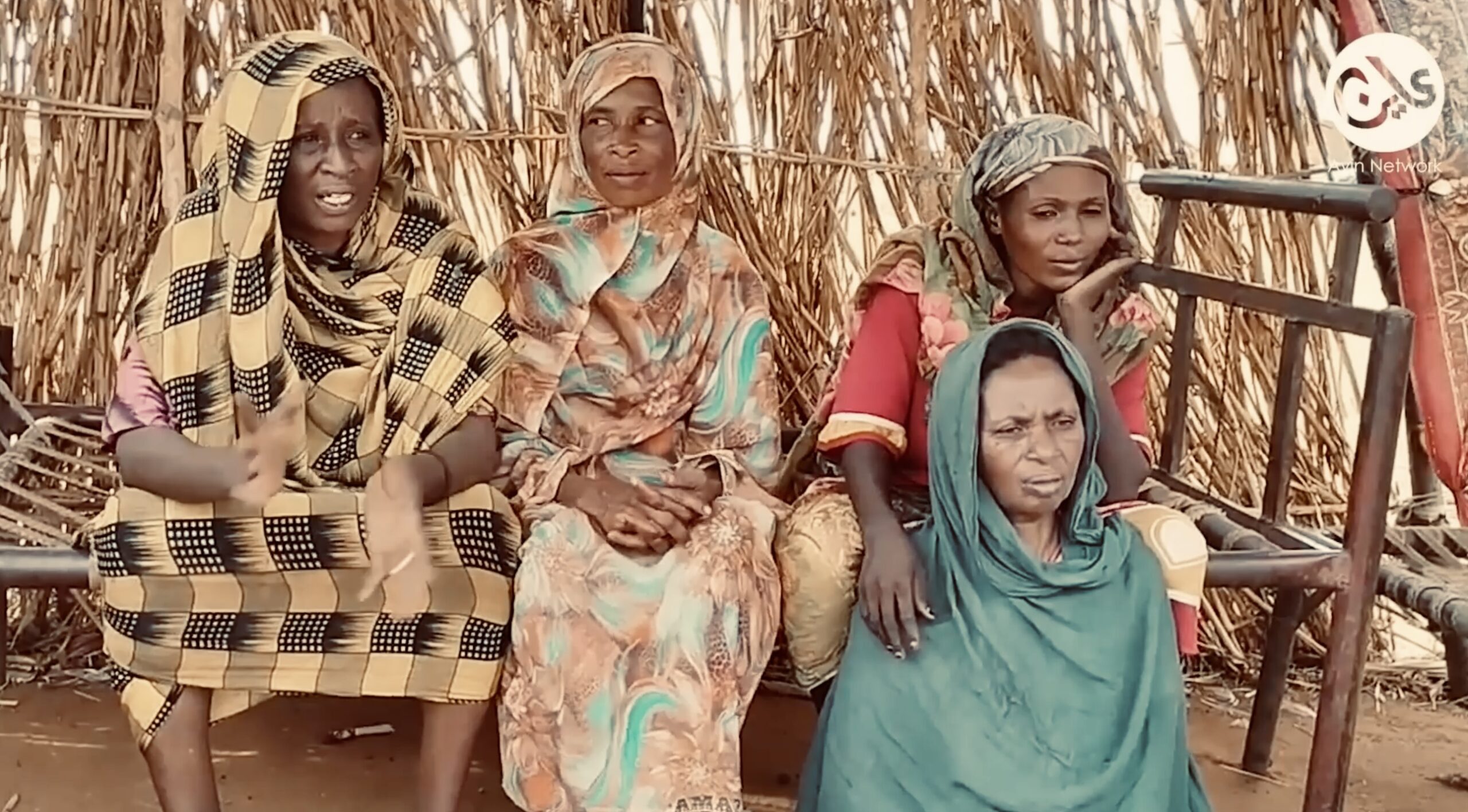Jawahir’s story
4 December 2023
Jawahir Abdul Rahman was halfway into her pregnancy when she was injured in one of the most violent attacks by the Rapid Support Forces and their allied militias on the city of El Geneina in West Darfur state last May. The attack caused her to become partially paralysed.
She was unconscious following the injury, and when she woke up, she heard the dreadful news that most of her family members had been killed.
Jawahir, who studies Economics and Social Studies at El Geneina University in West Darfur State, used to live in the Al-Zuhur neighborhood of the city. She remembers going to visit her mother in the Al-Madaris neighborhood before the fighting broke out between the army and the Rapid Support Forces (RSF).
“When the gunmen arrived at our house, they burned it completely, shot and killed two of my grandmothers, and set their bodies on fire inside the room. Then they headed to the other side of the house to kill my aunt, and my uncle and wound other members of the family,” Jawahir told Ayin.
She said that she was injured, as were her sister Fatima and her aunt, and they were taken to the hospital. All the family members were either injured or killed except for her mother and daughter. Her mother was unable to carry them all alone — some neighbors helped by placing the injured in a wheelbarrow to the hospital.
But even within the hospital, Jawahir and her family were not safe. Gunmen raided the facility, ordering everyone to leave the facility. “When the Rapid Support Forces entered El Geneina Hospital, they killed any man on sight. At that time, my mother ordered my brother and husband to leave the hospital.” Just as they were trying to leave, the RSF shot her husband, killing him on the spot.
Her brother returned safely the same night that her husband was killed inside the hospital and quickly carried them in a wheelbarrow to an abandoned house opposite the hospital. Jawahir’s brother had to leave with others fleeing the city, knowing he could easily be killed. “If we survive, we will reunite,” he told them. “That was the last time we saw him,” Jawahir said.
The mother and her daughter spent four days in that house across from the hospital, which was surrounded by foul odours and flies due to the dead bodies that were scattered everywhere around them. Jawahir had already lost her sense of smell and hearing in one of her ears due to the injury. Her mother was unable to eat during their time sheltering in this house due to the nauseating stench, which forced them to leave the house.
Jawahir’s mother carried her in the wheelbarrow, she was weak and could barely walk, but she managed to take her daughter a long distance, from Al-Madaris neighborhood to Al-Salam neighborhood. From there, Jawahir narrates, they stayed for a week before her mother decided to rent a car and head west to the Chadian region of Adré. It was the only option -since all hospitals in the area were closed and her daughter was in a critical state.
Jawahir is now staying in a ward in the makeshift hospital in Adré, after arriving there last June. At the time, she was four months pregnant, and she gave birth to her baby boy on September 2, 2023.
She cannot stand and walk on her own, struggling with health complications, and due to the lack of capabilities at the makeshift hospital, her head injury remains without proper treatment other than dressing the wound. “There is no appropriate treatment in Adré Hospital, and doctors are not able to treat the brain and nerves, as there is no neurologist here. Their only ability is to dry wounds and [help me to] practice yoga, which helps in treatment.”
Jawahir, her newborn son, and the few surviving members of her family await an uncertain future in the refugee camp, along with thousands upon thousands of other people who fled the war.
Those who escaped the massacres live in very dire conditions inside the camp, often in need of medical care, and they struggle to get by with the scarce resources. They remain frozen in time by fear and trauma, haunted by dreadful memories, and unsure of their fate.




